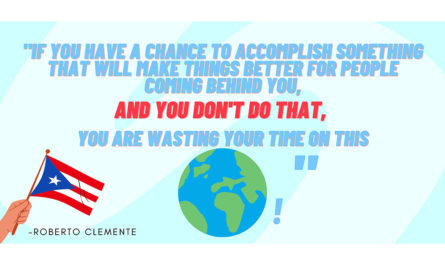“You can’t hit a target you cannot see and you cannot see a target you do not have.”
– Zig Ziglar
How many times have you heard the saying, “No pain, no gain”? Hundreds, I’d guess. The statement is obvious in its simplicity because it implies that you can only understand and appreciate something by comparison to its opposite.
I believe this statement to be an inherently true philosophy of life, and I think it’s important to realize that you can’t prevent yourself from getting hurt or feeling sad, every once in a while.
With that in mind, I’d like to take this discussion a bit further and dive into something that we’re all undoubtedly familiar with in some way: the struggle of building the next chapter of our lives as college students and how that may be even harder when depression arises and becomes a central part of the journey.
In 2015, I’d been juggling a lot in my life. Being a full-time college student, holding down a job, while also running your own Startup in the hopes that it would become something meaningful, is no easy task. Especially not while also dealing with anxiety and depression. With that came a lot of other challenges: I’d fall asleep in class or show up minutes before it ended, I’d arrive late to work, and I’d hide in the restroom, stricken with anxiety, instead of presenting my demos and presentations. I soon lost interest in everything, and wouldn’t leave my apartment. Eventually, so much piled up that the next best decision for me was to quit my job, drop out of school, and seek help so that I could recover the me I was meant to be.
Unfortunately, my story isn’t all that uncommon. According to The Anxiety & Depression Association of America, approximately 40 million adults (ages 18 and up) struggle with anxiety, which often coincides with depression. That’s about 18% of the population, every single year [i]. That does not, however, take into account all of the individuals who suffer in silence. Many individuals are afraid to come forward about their dealings with depression, as they have faced a lot of stigma and pushback when trying to talk about their invisible battle within. Not only that, but mental healthcare can be expensive, so people will invariably overlook getting the help they need because they cannot afford it. This article isn’t about the statistics, though, so let’s move forward.
Habits
I’ve learned a lot of lessons from that difficult period in my life, not the least of which is that you can stare down into your soul and into an uncertain future, with something to live for, or not. Something worth fighting for, laughing about, and loving… it’ll make the entire battle of life worth surviving because you’ll eventually thrive. I believe this is what’s so complex about depression. It’s a metaphorical villain in the story of a hero, turning them away from who and what they once loved. If you listen to that voice long enough, you’ll forget who you are and what you stood for.
I started my journey by being asked the following questions.
- What do you wish to change, and why?
- What is easier about staying the way you are?
- What are two new things that you can try this week?
- Describe your most perfect life. What does the day-to-day look like?
- What is one good thing that your depression has taught you?
Changing the angle of our vision changes the reality of what we see, and that’s where habits come into play.
We persist in our unhealthy habits because they provide relief from our daily struggles. We persist in our healthier habits because they provide long-term rewards. One is like putting a blanket over a messy bed and calling it clean, while the other one is essentially like doing laundry and then making your bed.
If you justify the reason for your behavior on the basis of your depression, you’re re-committing yourself to the never-ending cycle of being reactionary rather than trying to act against your impulses so that you may be able to conquer your demons and be liberated.
One way to make healthier habits is to take long-term goals and turn them into short-term steps. Let’s take a look at the template below.
| Long-Term Goals | Actionable Steps | Notes |
|---|---|---|
| “Get fit.” | – 7 minutes of planks every single morning. – 10 push-ups every time you get a glass of water or need to use the restroom. – Jog/fast-paced walking for 45-60 minutes while listening to some music, a podcast, or an audio lesson from your professor. – 8 minutes using an ab-roller. – Short on time but want to improve your posture? Put some weights in your backpack and wear it throughout the day. You’ll get stronger without taking extra time away from important deadlines ahead. -Get a standing desk. | |
| “Improve depression.” | – Start a blog or write in a private journaling application like Journey. You can also use free apps like Google Docs and Zoho Notebook and look up some wellness prompts that’ll help get you out of your comfort zone. – Seek therapy or find free online support groups. – Teach what you know to someone else who is where you once started. – Every time you have doubts or negative thoughts, replace them with positive actions and healthier thoughts. – Do some yoga. Even something as simple as Shivasana can alter your state of mind tremendously. | |
| “Write my book.” | – Day 1: Do some research & take notes. – Day 2: Write a thought-provoking introduction. – Day 3: Begin writing the first page of the first chapter of your book. |
This is a very basic template that you’re able to draw from. There’s nothing intense in it like “start a business”, but these will invariably help you achieve larger goals later on.
It is impossible to fail if you keep showing up. Take it from Edison’s story. When a reporter asked him how it felt to fail one thousand times before inventing the light bulb, he responded saying: ”I didn’t fail one thousand times, the light bulb was an invention with one thousand steps.” Re-framing can be powerful. Failure only counts as failure if you stop trying.
Remember not to confuse how you are for who you are, and that, as the Tanzanian proverb goes, ‘little by little, a little becomes a lot.’
Another way to manage your depression is to liken your life to a tray of food. If you receive a tray of food with 3 different items on it and you really only like one thing on that tray, your meal will generally seem less appealing than if there were two items on that tray that you enjoyed. Life is no different. The more things that you try doing, the more you pour yourself into different activities, the less power your depression will have over you because it’s not the only thing on your tray. You can’t like everything, but you can like some things. Depression is like an anchor, and you must resist the urge to stay stuck when you feel the pullback. Remember the analogy of depression being exactly like a bully who wants to strip away everything that is important to you. Ignore the naysayer.
It’s no secret that regret, like resentment, is powerful. In the end, they are the only things that tie us to the past. This is something I had to learn the hard way. If you’re driving down the road with your eyes fixed on the rearview mirror, you’re not only looking back at what can no longer be, you’re exposing yourself to the possibility of a crash. No one knows what lies ahead, but you’ve simply got to use your fear as fuel rather than a reason to run back to the way things were. That’s the asking price for a life re-invented. You won’t get to live a new life if you keep doing what you’re used to doing. Being adaptable to change is one of the few tools that’ll ensure your success.
Getting Things Done
To be a successful student (or employee), you’ve got to work smarter, not harder. One of the most helpful methods I’ve found to reach the fruit of my goals is to break tasks down using the Pomodoro Technique. It goes a little something like this:
Pomodoro Session 1
- Task 1: 25 minutes.
- Break 1: 5 minutes.
- Task 2: 25 minutes
- Break 2: 5 minutes.
Pomodoro Session 2:
- Task 3: 25 minutes.
- Break 3: 5 minutes.
- Task 4: 25 minutes.
- Break 4: 5 minutes.
Your third Pomodoro session will preferably be your last of the day. This session will give you 5 additional break minutes, but your tasks will go back to previously unfinished tasks instead of asking you to create new ones.
The reason I initially chose the Pomodoro Technique is that I personally found it to be the most ‘depression-friendly’ time-management tool. I’m not overworking myself, but I’m also not accomplishing too little. Since I’m changing things up every 30 minutes, I don’t give my depression enough time to sink in while I’m doing my work in stillness.
To track your habits easily, you can use an application called Proddy. This app uses statistical analysis, and the more consistent you are in logging your on and off days, the more information you’ll get as to how your mood influences your behavior and how those affect your habits.
Loving Yourself
(No, really, self-love isn’t a joke, and it’s not a cliche).
I’m currently at level 27 (because using the word ‘age’ is no fun). It took me a long time to realize that my depression arose because I tried so hard to be everything I never was. I eventually understood that I shouldn’t be ashamed of who I am. Anyone who doesn’t accept me and those who try to change me, well… those are people I don’t need in my life in the first place.
If the people in your life don’t nurture their relationship with you using:
- Acceptance
- Love
- Kindness
- Encouragement
I kindly ask you to reconsider having them as a part of your life. Cutting out the things that don’t push you forward in life will allow you to go even further than you thought possible.
Start from where you are, accept who you are, and treat yourself as you would a little sibling or a curious and possibly troubled child who came to you, asking for help. Don’t lose yourself trying to fit into a crowd, for you will become invisible and lose your individuality.
Question: What do you prefer: pizza or your college? That makes no sense, right? Neither does comparing your journey to someone else’s. Someone else seemingly being ‘ahead of you’ is like you and I reading two different books and you telling me that I’m a faster reader than you. There are a lot of different factors at play, and if you try to copy my path to being a successfully fast reader, you’ll be following a path that is ultimately not meant for you (also, I’m a slow reader). Everyone starts out as being a beginner – that is how one becomes an expert. Repetition. Comparison kills the joy of embracing where you are.
There are no magical words that I can say that’ll cure your depression. No one but you can make the choice to reach out instead of going into battle alone. What I can say, though, is that there’s nothing worse than feeling regret as the first emotion when you wake up; and that our lives have the duration of the unknown. If you want a life better than the one you’re living, realize that the voices that are trying to prevent you from seeking the help, love, and support you need, are not real. The greatest threat will always come from within, and all we need are signs from people that prove this to us. Whether you seek help at Herkimer or other sources, that’s up to you. But if you are to become who you were meant to be, you first have to unbecome everything your depression tried convincing you that you were.
Reach out, stay awesome, and stay sweet. There’s power in unity, and we may feel lonely but we aren’t truly alone.
Resources
These are (mostly) free resources at your disposal.
Hotlines & Support
2. RAINN (National Sexual Assault Hotline).
3. NEDA (Eating Disorders Hotline)
4. IMAlive: Free crisis support.
5. Crisis Text Line: Get crisis support via text.
Groups & Other Services
1. In The Rooms: No matter the addiction you’re struggling with, ITR is a free and welcoming community for all individuals looking to share their journey with others and learn new coping tools. Groups include AA, NA, CoDA, EA (great for individuals struggling with depression), and many more. Attend live video meetings, post on the discussion forums, meet like-minded individuals, and get a sponsor (someone akin to a mentor) – all for free.
2. RemedyLIVE/SoulMedics: Mental health support.
3. 7Cups: Talk to caring peer listeners or hire an online therapist.
4. BetterHelp: Online therapy.
5. Campus Counseling: Looking for someone on the Herkimer Campus? Talk to your friendly neighborhood counselor today.
6. Meetup: Find local workshops and meet new people.
Activities to try
1) Depression Worksheets – TherapistAid
2) Therapy Worksheets – PsychPoint
3) 200+ Worksheets – Mind Remake Project
4) Try a Sensory Deprivation Tank – great for relaxing the mind and body.



